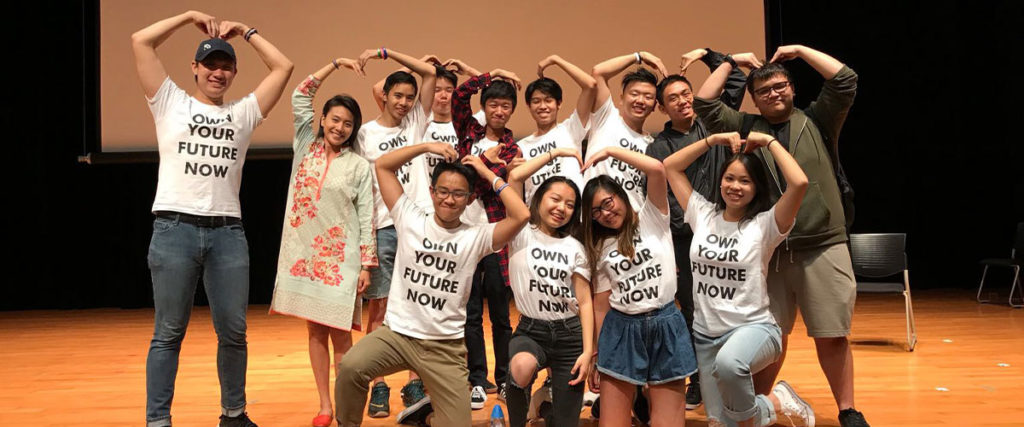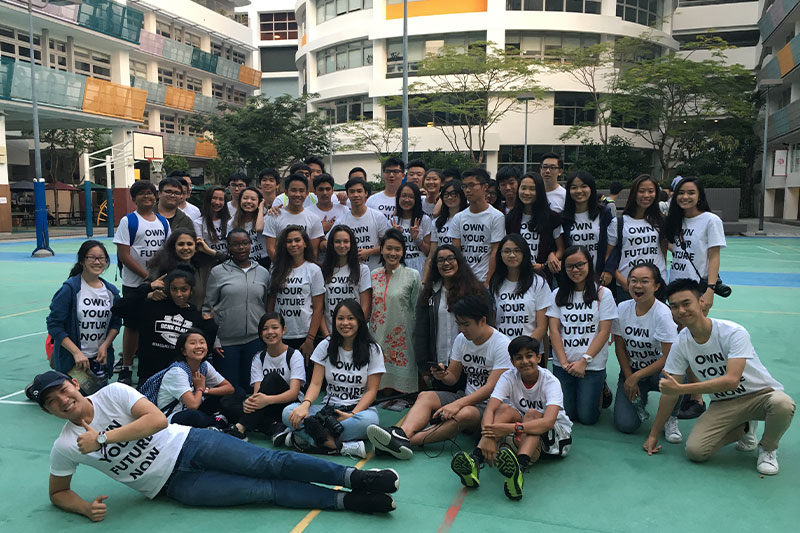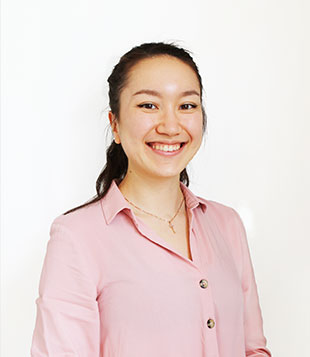OWN Academy is at the forefront of Hong Kong’s emerging education revolution, bridging the gap to support students’ futures.
The world of work is changing rapidly. In the wake of the Fourth Industrial Revolution, roughly 65% of children entering primary school today will be employed in jobs that don’t yet exist, while half of all work activities can be automated in the future using existing technology. This poses a massive problem for teachers who must grapple with an education system that is largely unresponsive to the needs of today’s industries, thereby equipping generations of students with skills that may soon become obsolete. To address this gap, Hong Kong native Natalie Chan founded OWN Academy in 2016, with the goal of bringing industries into the classroom, empowering students to take ownership of their learning and better tackle the challenges of the future. Basing their framework around the 2018 Future of Jobs report, OWN Academy partners with carefully curated industry experts to provide bespoke learning experiences – both online and offline – in professional ‘real world’ contexts, such as internships, apprenticeships and community engagement opportunities. This opens students’ minds to a variety of career paths, from filmmaking to stand-up comedy.
An engineer, corporate professional and independent film producer prior to entering the education space, Natalie’s tireless efforts over the past 4 years have garnered international recognition. In 2019, she was selected for Ashoka’s Changemaker Program and invited to attend the 49th World Economic Forum in Davos as one of 40 youth representatives changing the world. We got the chance to speak with Natalie about what’s wrong with the current education system in Hong Kong, her vision for a more holistic and democratised learning ecosystem, and words of advice for young people stuck at home during COVID-19.
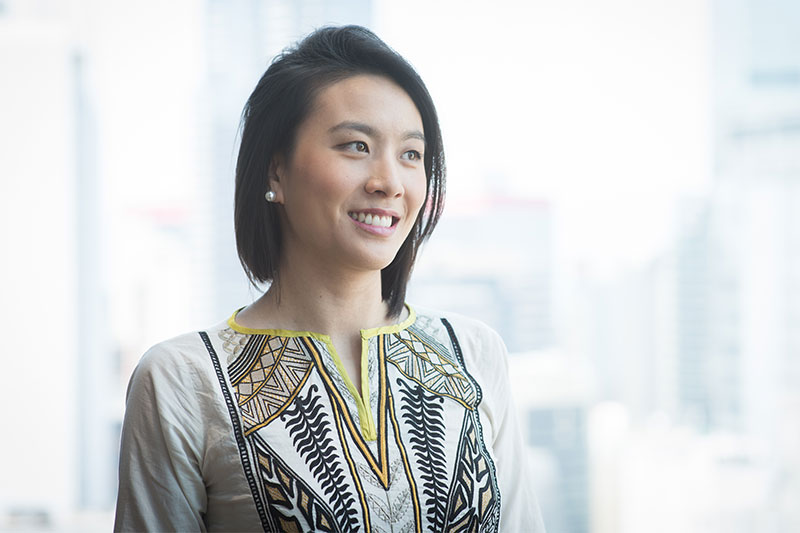
Tell us a bit about your background and the inspiration behind OWN Academy.
I was born and raised in Hong Kong and had what some might call a very diverse educational experience. I went to a local school up until grade 7, then attended Hong Kong International School (HKIS) for a year before my mum sent me to boarding school in Connecticut for 4 years. I then went to the University of Southern California (USC) where I studied Industrial and Systems Engineering with a minor in Business. My educational journey has been a big source of inspiration for what I do now because, in Asia especially, parents are always vying to give their children the best education possible. At the time, I always believed that each new school would be better than last. But, when I finally entered the ‘real world’ and got a corporate job at one of the ‘Big Four’, I quickly realised how completely unprepared I was. There’s this huge gap between what schools teach us and what’s actually required in the real world – so that’s where the idea for OWN Academy came from.
What problem is OWN Academy uniquely trying to solve in the current education system?
The first thing I always say is that OWN Academy connects education to industries by bridging the gap between what the ‘real world’ demands and what schools may not have the resources to fulfil. This gap stems from the fact that our current education system is predicated on the needs of the Industrial Age 200 years ago. Students don’t understand why they’re learning things like the Pythagorean theorem if they’ll never use it in today’s digital economy. And so, students lack inherent motivation because they’re not asked what they want to learn; they’re told.
What OWN Academy aims to do is explain the ‘why’ of learning by bringing them into the future and then unlocking that motivation by exposing students early on to possibilities they didn’t know existed for them. Once students are motivated, you don’t even need to teach them what to learn. They’ll just want to learn. For me, I never knew what I was good at until I quit the ‘conventional’ path and began pursuing something I never thought was possible for me, like becoming a film producer or an educator. And it was only when I started putting myself in those jobs that I realised, “Wow, I’m actually really good at this.”
There are lots of great philosophies out there about how to educate more holistically, such as Montessori, the Waldorf method and even the IB (International Baccalaureate), but I think it’s the content that is really lacking. The real world isn’t subject-based like it is in the educational world; it’s interdisciplinary and connected. I think there’s also a need to offer students a more personalised, democratised and decentralised learning space, especially during COVID-19 where the ones left behind are those without access to the Internet.
Learning is something that happens everywhere, anywhere. That’s why we work so closely with industry professionals because we feel the most passionate people are the best educators, not necessarily those with teaching qualifications.
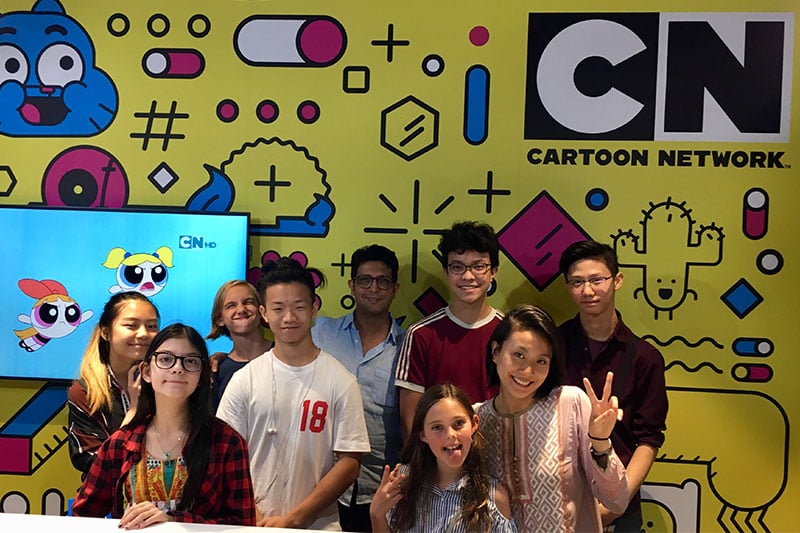
Can you walk me through the services you offer?
At OWN Academy, it’s all about exposure and experiential learning. We offer two main flagship programmes: the OWN Future Fair and Real-World Learning Week. The OWN Future Fair is an interschool event in which we invite young professionals, each representing modern industries, to share their unique career stories with students and parents. By exposing both to pathways they may be unfamiliar with, parents can better support their children as they embark on their journey of self-discovery.
Schools generally hold lots of career fairs, but often, you’ll find that they rely on their parent or alumni network – whoever’s free, really – where the representation of industries is still very traditional. So we curate our speakers in a much more young generation-focused manner, seeking out only those industries that are creative, entrepreneurial, innovative, and trendy.
Real-World Learning (RWL) Week is a five-day program where we identify an industry topic for students to learn and build projects around, alongside passionate professionals that we bring on board as teachers and mentors. This way, students can get a taste for the ‘behind-the-scenes’ experience through workshops and field trips. So we have a filmmaker experience, a comedian experience, game design – the list goes on. Often, we have students who can only think in terms of the conventional doctor or lawyer route because that’s what their parents want them to do. But, just because you’re exploring a filmmaker experience doesn’t mean you’re going to be a filmmaker. It’s about understanding how filmmakers think, their creative process, and how that can be applied, for instance, to your science or engineering thinking. Finally, students have the chance to win internships by pitching their solutions to real client companies. Our goal is for schools to adopt RWL into their calendars so that it can eventually become a month- or semester-long internship program.
Have people been receptive to your idea?
In general, people have been very receptive to the idea. But, I think there’s a difference between being receptive and having the time to explore this because education is very demanding. I mean, there’s the local side and then there’s the international school side and I see the latter demographic being much more open-minded even though they’re busy with extracurriculars like sports and tuition. That’s why our services focus much more on the holiday period, not the academic year because there’s just no time for that.
For readers who aren’t familiar with Hong Kong’s educational system, how would you explain the cultural differences between local and international schools?
I think the biggest difference is that local schools are very much a spoon-feeding culture when it comes to learning. It’s always ‘You think what I tell you to think’. But, with international schools, there’s more of an emphasis on critical thinking and exploration – you didn’t have to pick one thing and stick with it. And that was something I really struggled with when transitioning from local to international because I was always asked about my opinion, and I’d be like, “I don’t have an opinion; you tell me what the opinion is.” Both sides are still very academically driven, but I think one understands the holistic development of students better. The local side understands this too, but it’s much harder for them to execute when ‘good grades’ are just so ingrained into the minds of parents, teachers and society as a whole.
One example I can think of is a local school elective called Applied Learning (ApL), which effectively encourages students to gain work experience and learn outside the classroom. Yet, the highest grade you can get for ApL is the equivalent of a B. This isolates those students who cannot afford a B because they need straight As to get into a top university – so it’s already putting you into boxes, which I think is very unfair. The world doesn’t need more straight-A students. It needs B and C students who can think more laterally and who have hands-on experience because an A says nothing about how successful you’re going to be in the future.
Is it fair to say that OWN Academy is redefining what it means to be ‘intelligent’ today?
Instead of trying to redefine intelligence, I would say it’s more like everybody is intelligent – it’s just a matter of how. I think in order to be successful in the future, students definitely need to be resilient and adaptable and to understand that nobody is going to spoon-feed you. One thing I always ask people is, how are you connecting the dots? How do you create value by making those connections that nobody else sees? That’s where true success lies.
Many students in Asia have so-called ‘tiger parents’ who are very grade-focused. How do you convince them of this alternative education solution?
That’s a good question. I would call my own upbringing a ‘tiger mum’ upbringing and it was definitely very challenging. Having been through that, though, I’m also grateful because tiger mums do this purely out of goodheartedness and care for your future, right? But, I think this kind of ‘pressure cooker learning’ is no longer applicable in an age where you have the world’s knowledge at your fingertips. Information is no longer a commodity that you’re having to grind into your head and sell yourself for. It’s about the way you think and the way you behave. And those things cannot be cultivated when there is a tiger mum mentality.
So the way that I talk to these tiger mothers is by showing them the future: by talking to them about what these companies and universities they want their kids to get into are actually saying. And what they’re saying is that top graduates from top universities aren’t employable because they have this false impression of what ‘academic excellence’ has given them – they’re more egotistical and less willing to start from the ground up.
Employers don’t want people who think like robots or cookie cutters. They want people who have their own opinion – and that’s not the same definition of success tiger parents grew up with. You can be a different tiger mum if that’s what it takes to show them this is where the future is going!
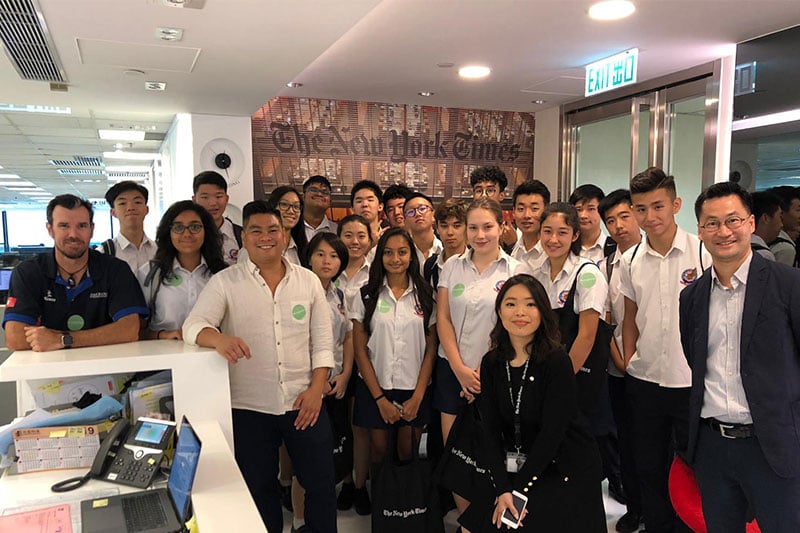
How has COVID-19 disrupted the education industry and what changes do you see arising as a result?
COVID-19 is definitely challenging the status quo on the instruction of learning, as well as the format of learning. We’ve been talking about the importance of being ‘digitally savvy’ and ‘future proof’ in education circles for such a long time now, always in hypotheticals, but COVID-19 has brought that future forwards to the present. So how can we reshape education when the time to reset is not tomorrow, not next year, but right now? How do we bring offline teaching online more seamlessly?
Our current educational infrastructure holds so much brainpower, yet it’s being channelled towards silly maths problems that go nowhere. What if that same brain power was used to solve business, community or charity problems instead? Here, the teacher’s role would be transformed into a facilitator role where students are guided, not instructed, and ultimately connected with professionals to determine whether the solutions they come up with are feasible.
We’ve actually just launched a free online competition called ‘Real World Challenge’ with a submission period from 4 May to 8 June 2020, inviting students aged between 12 and 17 worldwide to propose a fun and innovative project idea for a summer under COVID-19. So we’re asking them to submit up to 200 words and a supporting video or visual graphic, before pitching their idea to a panel of judges in June. The winners, who will be announced on 27 June, will receive a cash prize, mentorship and an internship. We’ve heard a lot from adults already, but if the next generation will be our future leaders, let’s ask them too. How has COVID-19 left its mark on our world – and what’s next?
What advice would you give to students on how to make the most of their time during this uncertain period?
I was actually advising my interns on this a few days ago. As one of around 1.5 billion students worldwide stuck at home today, I think what recruiters and admissions officers would want to know when you apply is how you actually spent your time during isolation. Did you spend it watching Tik Tok or YouTube videos, or did you spend it pursuing something you’re passionate about? Because I think COVID-19 has, in a way, levelled the playing field so that everybody’s experience is exactly the same. The only people who stand out are those who choose to do something different, who realise that this is the time to invest in themselves and to build something out of nothing.
So I would encourage students to ask themselves: how are you using this time to create a uniqueness about yourself that you couldn’t otherwise create during a normal school year? Really start formulating your passions because that’s what will differentiate you from others down the line.
Any future plans?
World domination! I often say that I’m on a 30-year journey to create a new education ecosystem. Every 3 years is a new iteration, so we’ve just passed our first iteration in research and development. The next step right now is bringing everything online. So what we’re looking to build is a centralised resource hub where students can go for career exploration, support and mentoring – like an Airbnb experience for careers.
There’s already a lot of support for university students, but when it comes to secondary school students, there’s no way for them to access these opportunities unless their parents are well-connected and can hook them up. We’re still in the very early stages, but my goal is for OWN Academy to become that go-to platform for schools, students and industries to work together and really take the lead in transforming education after COVID-19.
OWN Academy is on the lookout for virtual interns and industry leaders passionate about inspiring the next generation and becoming a part of this innovative learning ecosystem. To find out more, visit www.ownacademy.co or contact Natalie at [email protected].
Related Articles
Kosmic.io: The HK Startup Making Learning Fun with Live-Streamed Classes
Disney Codeillusion: Teaching Kids To Learn To Code
The Hacker Exchange: The Woman Teaching Young Minds to Innovate
